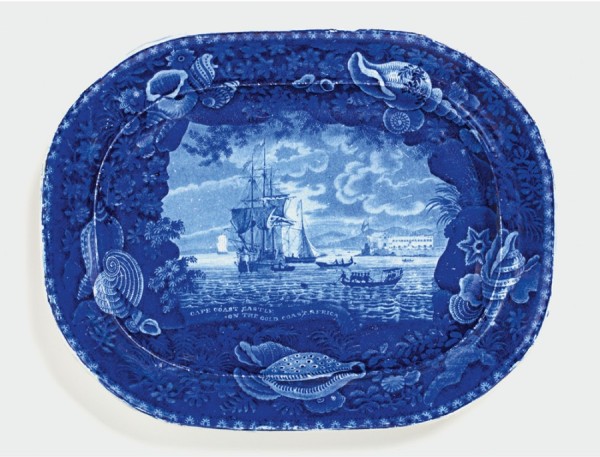
Platter illustrated with Cape Coast Castle on the Gold Coast Africa by Enoch Wood & Sons, Burslem, Staffordshire, England, ca. 1830. American transfer-printed earthenware, impressed on back: Wood. L. 16 1/2". (Paul Scott Collection; photo, John Polak.)
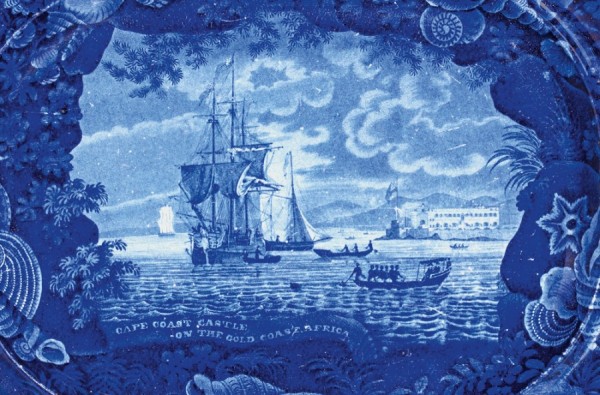
Detail of the platter illustrated in fig. 1.
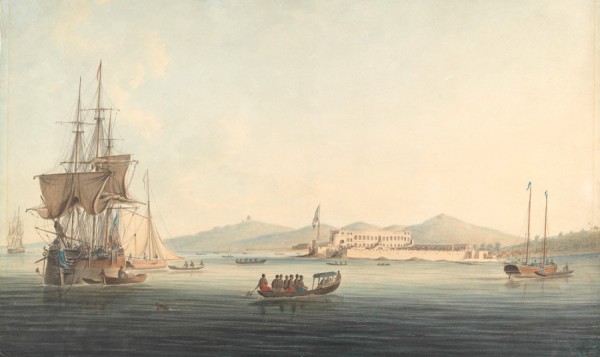
George Webster (active 1797–1832), Cape Coast Castle, on the Coast of Guinea, 1799–1800. Watercolor on paper. 13 5/8 x 22 1/4". (Courtesy, Royal Museums Greenwich.)
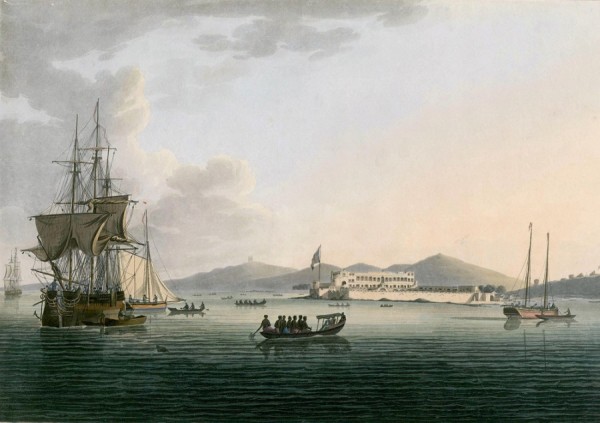
John Hill (1770–1850) after George Webster, Cape Coast Castle, a British Settlement on the Gold Coast Africa, 1806. Colored aquatint on paper. 17 5/16 x 23 3/4". (Courtesy, British Library.) The inscription reads, “Drawn by G. Webster. / Engraved by J. Hill. / Published, Octr. 26. 1806, by J. Barrow, No. 1, Weston Place st. Pancras, & G. Webster, No. 21, White Lion Street, Pentonville.”
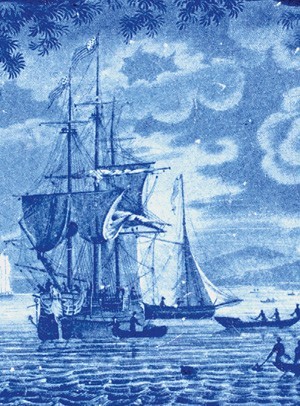
Detail of the platter illustrated in fig. 1.
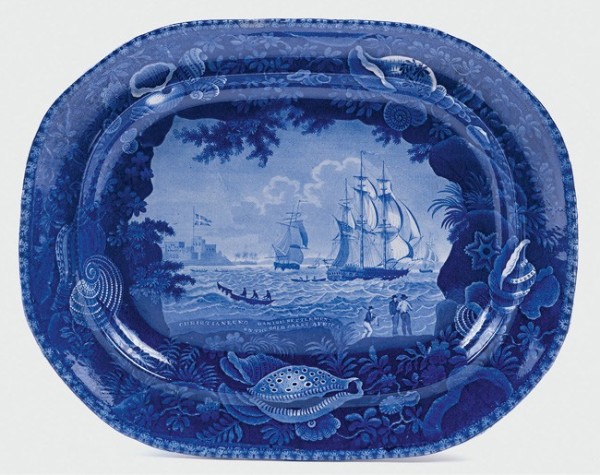
Platter illustrated with Christianburg Danish Settlement on the Gold Coast Africa, Enoch Wood & Sons, Burslem, Staffordshire, England, ca. 1820–40. American transfer-printed earthenware. W. 18 1/2". (Courtesy, Historic Deerfield.)
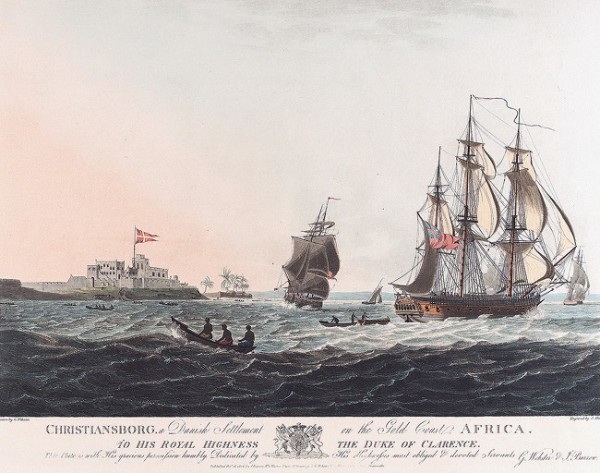
John Hill, Christiansborg a Danish Settlement on the Gold Coast of Africa. Colored aquatint after George Webster, published by J. Barrow, London, 1806. 17 5/16 x 23 3/4". (Courtesy, British Library.) Below the title is written, “Drawn by G. Webster. / Engraved by J. Hill. / Published, Octr. 26. 1806, by J. Barrow, No. 1, Weston Place st. Pancras, & G. Webster, No. 21, White Lion Street, Pentonville.”
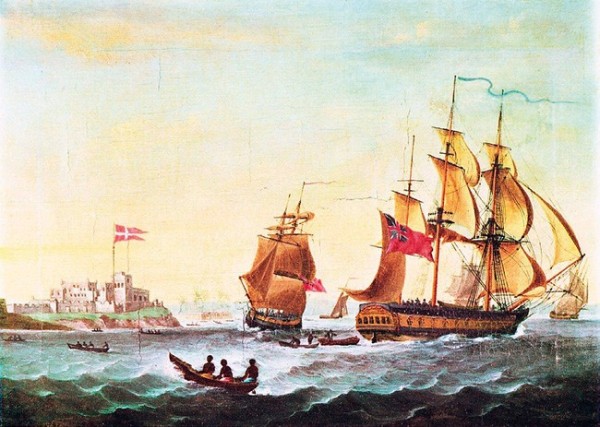
George Webster (1797–1864), Two British Slave Ships at Christiansborg, 1799–1800. Oil on canvas. 13 1/16 x 18 1/4". (Courtesy, Danish Maritime Museum.)
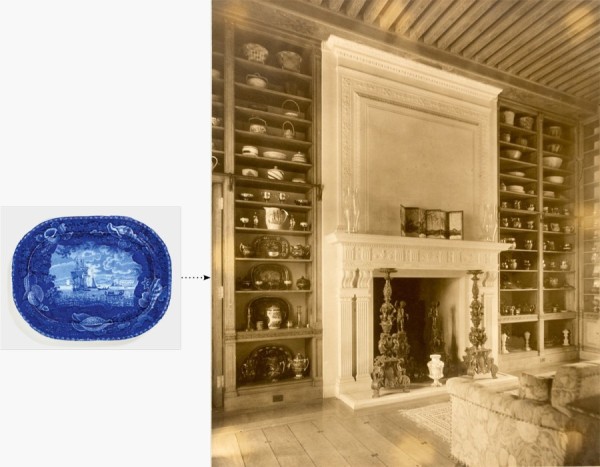
Photograph by Paul J. Weber in a ca. 1930 album, showing the Enoch Wood & Sons Cape Coast Castle platter on a shelf in the Aldrich family mansion in Warwick, Rhode Island. (Courtesy, Historic New England; photo, Paul J. Weber.) Paul Scott superimposed his own platter onto the image, confirming that the object displayed was indeed the Wood piece. See the Historic New England web site https://www.historicnewengland.org/explore/collections-access/capobject/?refd-PC009.228H.
